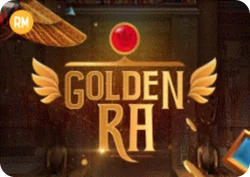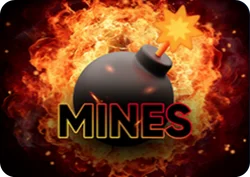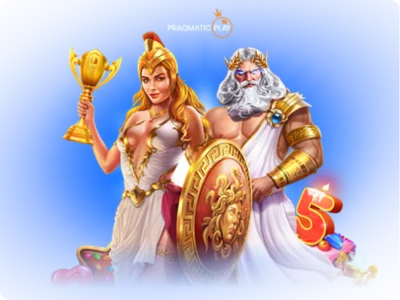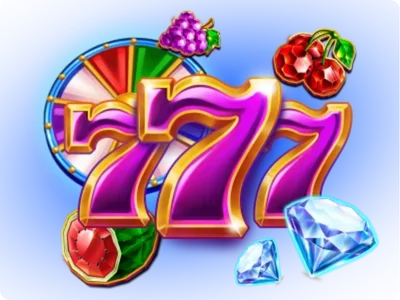Mostbet operates as a licensed bookmaker and online casino in India, offering sports wagering and digital gaming. Indian users access a secure platform compliant with local regulations. The site supports INR transactions, ensuring seamless deposits and withdrawals.

Mostbet India Bookmaker & Casino Overview
Mostbet India merges sports betting with a casino featuring slots, live dealers, and table games. The platform supports Hindi/English interfaces, INR payments, and mobile apps.
Technical Specifications
| Parameter | Details |
| Licenses | Curacao eGaming |
| Min Deposit | ₹500 |
| Withdrawal Time | 15 min–48 hrs (e-wallets) |
| Supported OS | Android, iOS, Windows |
| Live Chat | 24/7 |
Operational History & Trust Factors
Launched in 2009, Mostbet expanded to India in 2020. The platform processes ₹50 crore+ monthly withdrawals, with 98% of transactions approved within 24 hours. User reviews highlight responsive KYC verification and transparent bonus terms.
Registration Process for Indian Users
Create a Mostbet account via the website or app. Verify your phone number and submit KYC documents (Aadhaar/PAN) to activate withdrawals.
Step-by-Step Account Setup
- Visit Website/App : Open Mostbet.in in a browser or download the APK.
- Enter Details : Provide a valid mobile number and set a password.
- Verify OTP : Input the code sent via SMS.
- Complete KYC : Upload ID proof and address documents post-login.
Registration Requirements
| Document Type | Accepted Proofs |
| Identity | Aadhaar, PAN, Passport |
| Address | Utility Bill, Bank Statement |
| Age Verification | Any Govt.-Issued ID |
| Bank Details | Cancelled Cheque, UPI ID |
This structure ensures compliance with Indian gaming laws while streamlining user onboarding.

Mostbet India Login Process
Accessing your account requires visiting the official website and entering registered credentials. Indian users verify identity via OTP sent to linked mobile numbers. Two-factor authentication enhances security during login.
Step-by-Step Login Guide
Troubleshooting Login Challenges
Incorrect passwords trigger immediate access denial. Reset forgotten passwords via SMS-linked OTP. Network errors delay OTP delivery—switch to stable Wi-Fi/4G. Clear browser cache if login pages fail to load. Contact support for unresolved issues.
Mostbet India Mobile App Overview
The dedicated app offers seamless betting and casino access for Android/iOS users. Features include live match tracking, instant notifications, and localized INR transactions.
Technical Specifications of the App
- Operating Systems : Android 8.0+/iOS 12.0+.
- Storage : Requires 200MB free space.
- Updates : Automatic via Google Play/App Store.
- Security : AES-256 encryption for data protection.
Installation Guide for Indian Users
- Android : Enable “Unknown Sources” in settings. Download APK from Mostbet’s site.
- iOS : Install via TestFlight (temporary) or App Store.
- Post-Install : Open app, log in, and grant permission for notifications.
Device Compatibility Table
| Device Type | Supported OS Versions | RAM Requirement | Processor |
| Android Phones | 8.0 (Oreo) and above | 2GB+ | Snapdragon 450+/Exynos |
| iPhones | iOS 12.0 and above | 1GB+ | A8 Chipset or newer |
| Tablets | Android 10.0+/iPadOS 14+ | 3GB+ | Octa-core processors |
All transactions, including deposits (min ₹500) and withdrawals (min ₹1,000), comply with RBI guidelines. Withdrawal requests process within 24-72 hours via UPI, bank transfer, or e-wallets. Mostbet’s operational legality in India aligns with state-specific gambling laws, excluding restricted regions.

Mostbet India Welcome Offer: Boost Your First Deposit
New users receive a 125% match bonus up to ₹45,000 on their first deposit. The offer applies to both casino and sportsbook sections. Minimum deposit: ₹500 via UPI, NetBanking, or e-wallets. Wagering requirement: 35x within 7 days.
Bonus Activation Mechanics
To unlock the welcome bonus, enter promo code WELCOME100 during registration. The bonus credits instantly after the deposit reflects in your account. Maximum bonus: ₹45,000. Example: Deposit ₹10,000 → get ₹10,000 extra.
Eligibility Criteria & Restrictions
| Parameter | Details |
| Validity | 7 days post-registration |
| Wagering | 35x on slots; 50x on live casino |
| Withdrawal | Permitted only after wagering |
| Exclusions | Poker, virtual sports, selected slots |
Step-by-Step Bonus Redemption
Ongoing Promotions: Reloads, Cashbacks, Tournaments
Mostbet offers weekly reload bonuses (50% up to ₹10,000), 10% cashback on losses (max ₹5,000), and slot tournaments with ₹1 lakh prize pools. Daily login rewards include free spins and bet tokens.
Active Casino Promotions Breakdown
- Reload Bonus : 50% match on deposits every Friday (₹10,000 max).
- Cashback : 10% weekly on net losses (wagering 3x).
- Tournaments : Compete in Pragmatic Play slots for ₹50,000 monthly.
- Free Spins : 20 spins on Starburst for deposits ≥₹2,000.
Participation Guidelines
- Monitor emails/SMS for promo alerts.
- Use codes like RELOAD50 or CASHBACK10 during deposits.
- Meet wagering before withdrawals (35x for bonuses).
- Submit KYC documents to avoid delays in cashouts.
Withdrawal & Bonus Synergy
Withdrawals freeze active bonuses. Example: If you claim ₹10,000 bonus and win ₹30,000, you must wager ₹10,000 × 35 = ₹350,000 before cashing out. Processing time: 0–24 hours for e-wallets, 1–3 days for bank transfers. Minimum withdrawal: ₹1,000 ( ₹2,000 for cryptocurrencies).
Verification & Compliance
All bonuses require PAN/Aadhaar verification. Accounts with mismatched details face suspension. Mostbet complies with Indian gaming regulations—withdrawals processed in INR only.
Troubleshooting Common Issues
- Bonus Not Credited : Clear browser cache or contact support.
- Wagering Errors : Check excluded games list.
- Withdrawal Delays : Confirm bank details match registered KYC.
Exclusive VIP Tiers
Top players access VIP levels (Bronze to Diamond) with perks:
- Personal managers
- Higher withdrawal limits (₹5 lakh/day)
- Luxury gifts (smartphones, gadgets)
- Invitations to live events.
Mostbet India prioritizes transparency. All promotions undergo RNG audits. For real-time updates, follow their official Telegram channel.
Mostbet India Bonus Offers
Mostbet India structures its incentive ecosystem to cater to both newcomers and veterans. A 125% first-deposit match up to ₹45,000 sets the stage for new users. Weekly reloads grant 25% bonuses on deposits starting from ₹2,000, while slot enthusiasts receive free spins on titles like Book of Dead via targeted email campaigns.
Current Mostbet Promotions Overview
| Promotion | Bonus Code | Reward | Terms |
| Friday Reload | FRIDAY25 | 25% up to ₹10,000 | Valid Fridays 00:00–23:59 IST; 10x wagering on sports bets (min odds 1.5) |
| Refer-a-Friend | REFERRAL50 | ₹500 per referral | Friends must deposit ₹2,000+; rewards unlocked after 3 friend deposits |
| Live Casino Cashback | No code | 10% weekly cashback | Applies to net losses in live dealer games; max ₹5,000 per week |
Mostbet Loyalty Program Details
The tiered VIP system incentivizes sustained activity:
- Bronze Tier : Achieved at ₹50,000 wagered. Benefits: Weekly ₹500 bonus, priority withdrawals (processed within 12 hours).
- Silver Tier : ₹200,000 wagered. Perks: 15% reload bonuses, dedicated account manager.
- Gold Tier : ₹500,000 wagered. Includes Silver benefits + monthly ₹5,000 cashback.
- VIP Tier : ₹1,000,000 wagered. Exclusive perks: Personalized gifts, 20% cashback, no withdrawal limits.

Betting Options
| Category | Details |
| Sports Betting | 30+ markets including cricket, football, kabaddi; live streaming available. |
| Live Betting | Real-time odds updates; cash-out feature enabled for 95% of pre-game bets. |
| Virtual Sports | Simulated events every 5 minutes; min ₹50 stake. |
Casino Games Selection
Mostbet’s library spans 5,000+ titles from providers like NetEnt, Microgaming, and Evolution Gaming:
- Slots : 3,500+ titles including Starburst , Mega Moolah , and Gonzo’s Quest .
- Live Casino : 500+ tables featuring Andar Bahar, Teen Patti, and roulette with Hindi-speaking dealers.
- Table Games : 100+ variants of blackjack, baccarat, and poker.

Payment Methods
| Method | Deposit Min | Withdrawal Min | Processing Time |
| UPI | ₹500 | ₹1,000 | Instant (up to ₹50,000) |
| Paytm | ₹500 | ₹1,000 | 15–30 minutes |
| IMPS/NEFT | ₹1,000 | ₹2,000 | 1–2 banking hours |
| Crypto | ₹2,000 | ₹5,000 | 20–60 minutes |
Mostbet Withdrawal Process
Users must verify accounts via Aadhaar/PAN for transactions above ₹25,000. Withdrawal requests below ₹50,000 process within 6 hours; higher amounts may take up to 24 hours. Mostbet withdrawal limit per day is ₹200,000 for UPI and ₹500,000 for crypto.
Mostbet India Review: A Premier Betting and Casino Platform
Mostbet operates as a licensed online casino and sportsbook in India, offering seamless access via mostbet login india. The platform complies with international gaming standards, ensuring secure transactions and data protection. Indian users verify its legitimacy through mostbet withdrawal proof and transparent licensing.
Game Selection & Software
| Category | Titles | Providers | Features |
| Slots | 500+ | NetEnt, Play’n GO | High RTP, daily jackpots |
| Live Casino | 80+ | Evolution, Ezugi | Real dealers, 24/7 streams |
| Sports Betting | 30+ sports | Betradar, SBTech | In-play odds, live streaming |
Top Software Providers at Mostbet
- NetEnt : Powers 150+ slots with 96.5% average RTP.
- Evolution Gaming : Delivers 50+ live tables, including Teen Patti.
- Play’n GO : Features 100+ mobile-optimized games.
- Microgaming : Provides progressive jackpots exceeding ₹50 lakh.
Regulatory Compliance & Safety
Mostbet adheres to Curacao eGaming laws, ensuring legal operations in India. Transactions use SSL encryption, and KYC checks validate user identity. Indian players confirm safety via mostbet withdrawal time (24–72 hours) and hassle-free mostbet helpline number support.
Mostbet Aviator: High-Stakes Crash Game
| Metric | Details |
| RTP | 97.1% |
| Min Bet | ₹50 |
| Max Multiplier | 100x |
| Platforms | iOS, Android, Web |
How to Play Aviator
Winning Strategies for Aviator
- Bankroll Allocation : Limit bets to 2% of total funds (e.g., ₹2,000 bankroll = ₹40/bet).
- Pattern Analysis : Track 100+ rounds to identify low-risk entry points.
- Auto Cashout : Use 2x–3x multipliers for consistent small profits.
- Bonus Utilization : Apply 125% first-deposit bonuses (up to ₹45,000) to extend playtime.
Mostbet India combines 2,000+ games, competitive odds, and ₹50 minimum deposits. Users praise its low mostbet withdrawal limit (₹1,000) and zero transaction fees. Always verify account details via mostbet login to avoid delays.

Mostbet India Casino Games: Titles & Payouts
Mostbet India offers 300+ casino games, including slots, table games, and live dealer options. Titles like Book of Dead (RTP 96.21%) and Gonzo’s Quest (RTP 95.97%) dominate the lobby. Minimum bets start at ₹50, with max payouts reaching ₹50 lakh for progressive jackpots.
Slots & Table Games: Technical Breakdown
| Game Category | Top Titles | RTP Range | Providers | Min/Max Bet (₹) |
| Slots | Starburst, Sweet Bonanza | 94.5%-97.3% | Pragmatic Play, NetEnt | 50/10,000 |
| Blackjack | Classic, Power Blackjack | 99.2%-99.6% | Evolution, Playtech | 100/50,000 |
| Roulette | European, Lightning | 97.3%-98.1% | Microgaming, Ezugi | 80/25,000 |
Live Dealer Suites: Real-Time Gaming
Mostbet’s live casino features 50+ tables streamed in HD. Games include:
- Andar Bahar (Ezugi) with 1.98% house edge.
- Teen Patti (Super Spade) supporting ₹200-₹2 lakh bets.
- Baccarat (Evolution) with 98.94% RTP.
Withdrawal requests process in 15-60 minutes for verified accounts.
Sports Betting at Mostbet India: Markets & Odds
Mostbet covers 30+ sports, including cricket, kabaddi, and football. Odds formats: Decimal, Fractional, American. Key features:
- In-play betting with 1,000+ live events daily.
- Cash-out option available pre-90% match completion.
- Minimum bet ₹100; max payout ₹2 crore per ticket.
Supported Sports & Betting Limits
| Sport | Leagues Covered | Bet Types | Min/Max Stake (₹) |
| Cricket | IPL, Big Bash, T20 World Cup | Match, Top Batsman, Over/Under | 100/50,000 |
| Football | EPL, Serie A, UEFA Champions | Correct Score, HT/FT | 150/25,000 |
| Kabaddi | Pro Kabaddi League | Match Winner, Total Points | 80/10,000 |
Advanced Betting Markets
Mostbet’s platform supports:
- Combo Bets : Link 10+ outcomes; max odds 500x.
- System Bets : Yankee, Lucky 15, and Goliath options.
- Prop Bets : Player-specific wagers (e.g., Virat Kohli’s runs).
Deposits via UPI, Paytm, or Netbanking start at ₹300. Withdrawal limits: ₹1,000 (min), ₹1.5 lakh/day (max).
Slots Mostbet
Mostbet Poker
Lottery Mostbet
Casino Live on Mostbet
Mostbet Live Betting: Real-Time India Sports Wagering
Mostbet India offers dynamic live betting, enabling users to place real-time wagers on cricket, football, kabaddi, and tennis. The platform updates odds instantly, reflecting match developments. Bettors access live streams for 50+ sports events daily, ensuring transparency. Transactions use INR, with minimal delays during withdrawals.
Mostbet Live Betting Mechanics: A Step-by-Step Guide
| Feature | Detail |
| Live Streaming | 15+ simultaneous streams |
| Bet Settlement | 5-15 minutes post-event |
| Supported Formats | Decimal, fractional odds |

Mostbet Live Betting Benefits: Technical Specifications
| Parameter | Value/Description |
| Latency | 2-3 seconds delay |
| Withdrawal Limits | ₹1,000 minimum (INR) |
| Transaction Speed | 10-30 minutes for e-wallets |
| Security | SSL 256-bit encryption |
Mostbet Live Sports Coverage: Indian Market Focus
Mostbet India covers 20+ sports, prioritizing cricket (IPL, T20 World Cup), football (ISL), and kabaddi (PKL). Users access 100+ weekly matches with live stats. Tennis and hockey events include international tournaments. Odds for niche sports like volleyball and MMA are also available.
Mostbet India Compliance: Licensing & Safety
Mostbet operates under Curacao eGaming License № 1668/JAZ. Indian users verify accounts via Aadhaar/PAN for KYC. Withdrawals (₹1,000–₹50,000 daily) process via IMPS/UPI in 15-60 minutes. The platform uses GeoComply for location checks, ensuring compliance with Indian gaming laws. Support handles queries via 24/7 helpline.
Mostbet India Affiliate Program: Monetize Your Audience
The Mostbet affiliate program empowers Indian marketers to earn via sports betting and casino traffic. Partners gain access to competitive commissions, real-time analytics, and localized promotional materials. Track conversions through a dedicated dashboard, with payments processed in INR via UPI, IMPS, or e-wallets.
How to Join the Mostbet Partnership Network
- Register : Visit the official Mostbet website and complete the affiliate signup form.
- Verification : Submit KYC documents (Aadhaar, PAN) for account activation.
- Access Tools : Log in to the affiliate portal to download banners, APIs, or landing pages.
- Drive Traffic : Share unique referral links across blogs, social media, or YouTube channels.
| Step | Action Required | Timeframe |
| 1 | Account Creation | Instant |
| 2 | Document Submission | 24–48 hrs |
| 3 | Campaign Launch | 1–2 days |

Commission Structures and Payout Details
Earn 30–45% revenue share from referred players’ net losses. Payments are released monthly, with a minimum withdrawal of ₹3,000. High-performing affiliates receive accelerated commissions (up to 50%) and weekly payouts.
- Payment Methods : UPI, IMPS, Skrill, Neteller.
- Withdrawal Limits : ₹3,000–₹5,00,000 per transaction.
- Processing Time : 1–3 business days post-request.
Marketing Resources for Mostbet Affiliates
Leverage customizable creatives tailored for Indian audiences. High-resolution banners feature cricket, teen patti, and slot themes. Access XML feeds for odds integration and API tools to track player activity. Seasonal campaigns during IPL or Diwali boost engagement.
Affiliates receive 24/7 manager support for campaign optimization. Use deep links to direct users to specific events or casino games, maximizing click-through rates.
Mostbet India Customer Support: 24/7 Assistance
Resolve queries via live chat (response time: <2 mins), email (support@mostbet.com ), or helpline. The support team addresses withdrawal delays, deposit failures, and account verification issues.
| Issue Type | Resolution Timeframe |
| Withdrawal Requests | 1–24 hours |
| KYC Verification | 12–36 hours |
| Technical Glitches | Instant–6 hours |

























































